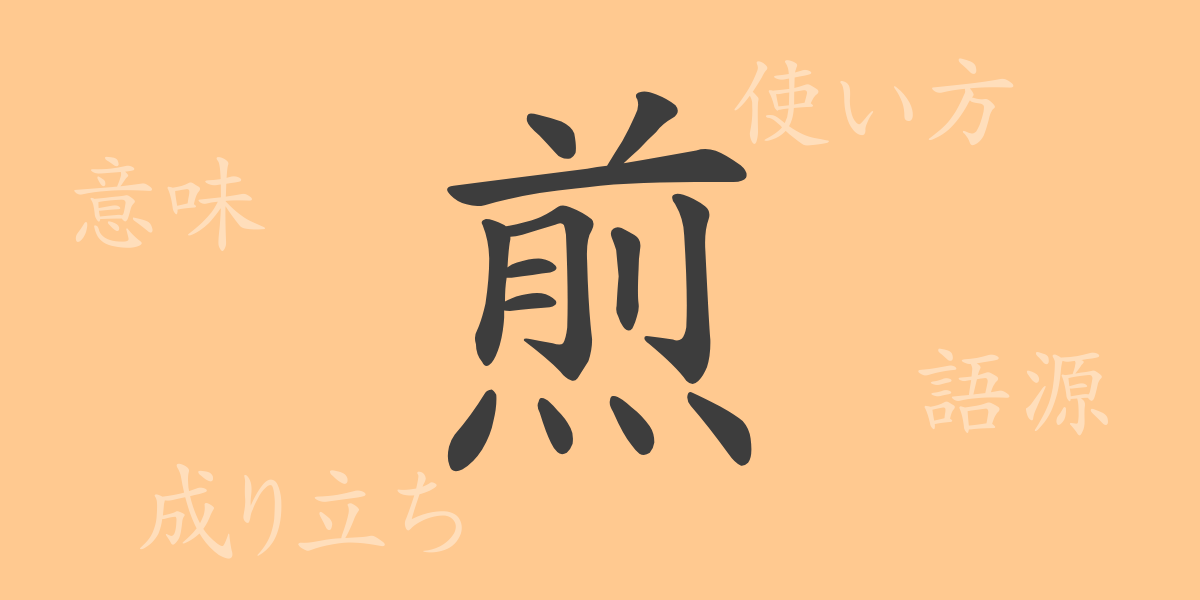The Japanese character “煎” (せん) is a kanji with rich expressive power, frequently used in daily life from cooking to pharmacology. This article dives deep into the world of “煎,” exploring its origins, meanings, applications, and related phrases and idioms to showcase its charm.
Origins of 煎
The kanji “煎” combines “炒” (しょう), representing the action of frying using fire, with “泉” (せん), meaning water. This blend symbolizes boiling with water or frying with fire, incorporating the nuance of heating something slowly and thoroughly, as reflected in the act of decocting.
Meaning and Usage of 煎
“煎” primarily means to heat something by fire. It includes making herbal decoctions (“煎じる”) and brewing tea by steeping leaves in hot water (“煎茶”). In cooking, it refers to the process of frying ingredients gently in a small amount of oil.
Pronunciation, Stroke Count, and Radical of 煎
“煎” is widely used across various contexts in Japan.
- Pronunciation: The On’yomi (Sino-Japanese reading) is “セン” (Sen), and the Kun’yomi (native Japanese readings) are “いる” (iru) and “せる” (seru).
- Stroke Count: “煎” consists of 13 strokes.
- Radical: Its radical is “火” (ひ), associated with fire.
Phrases, Idioms, and Proverbs Involving 煎
There are numerous idioms and expressions involving “煎,” each deeply embedded in Japanese culture:
- 煎茶 (せんちゃ) – A type of green tea made by steeping tea leaves in hot water.
- 煎餅 (せんべい) – A traditional Japanese cracker made from rice or wheat flour, toasted or grilled.
- 煎じ薬 (せんじやく) – Medicinal decoction made by boiling herbs in water.
- 煎じる (せんじる) – To decoct or brew by boiling in water or other liquids.
- 煎る (いる) – To gently fry ingredients in oil.
Conclusion on 煎
The kanji “煎” adds a rich layer of meaning and application to Japanese expression, indispensable in both culinary and medicinal fields. This exploration of “煎” has uncovered its multifaceted allure, enhancing our understanding and appreciation of this essential element in Japanese language and culture.

























